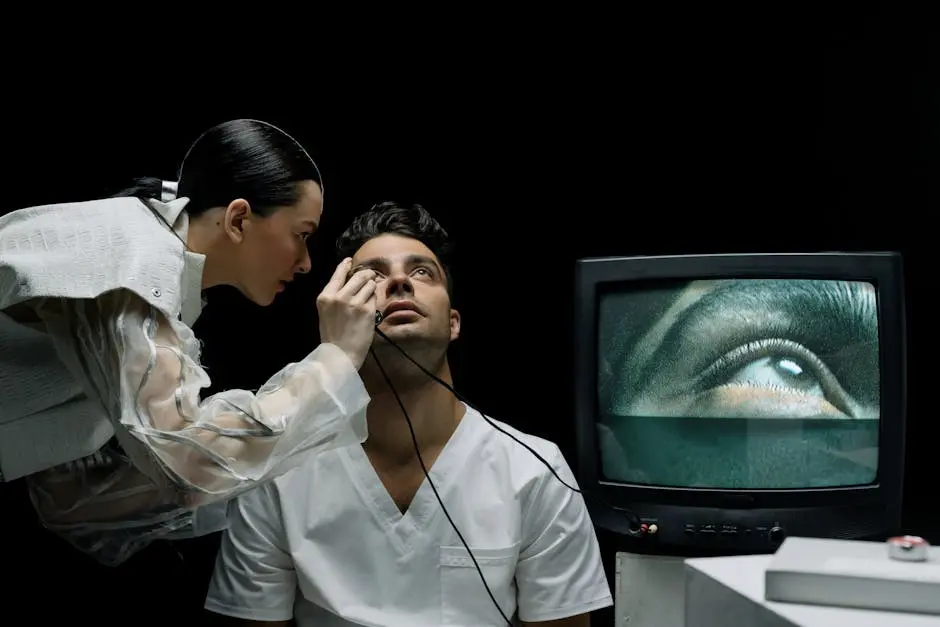
Regular eye exams are often overlooked in the hectic pace of modern life. However, they are essential for maintaining optimal vision health and ensuring that any potential problems are detected early. In this blog, we will explore the critical relationship between eye exams and vision health.
Why Eye Exams Are Essential
Eye exams are vital for delving into the nuances of your eye health, yet they also unearth valuable insights into your general well-being. Consider how conditions such as diabetes and hypertension can initially be detected through these vision screenings. As noted by the National Eye Institute, numerous eye diseases exhibit no early symptoms, underscoring the critical role eye exams play in early detection and intervention.
Remarkably, a comprehensive eye exam can uncover conditions that may seem unrelated to vision. The Centers for Disease Control and Prevention highlights the ability of these exams to reveal issues such as high blood pressure before overt symptoms arise. Prior knowledge and management of these conditions can significantly mitigate their impact, illustrating how pivotal routine eye exams are as part of preventive healthcare.
At Mid-Atlantic Eyecare, we offer comprehensive eye care combining routine exams with personalized medical insights, ensuring all visual concerns are addressed. Routine screenings are not just for detecting the obvious – they integrate into a larger health strategy designed to maintain overall wellness. Without regular check-ups, silent conditions like glaucoma or cataracts might silently progress, potentially leading to irreversible damage and vision loss.
What Happens During an Eye Exam
Embarking on a comprehensive eye exam journey typically involves a series of evaluations. During an exam, tests such as visual acuity assessments and evaluations of depth perception are conducted, as detailed by the American Optometric Association. These help pinpoint existing issues or changes that might necessitate corrective lenses or further medical intervention.
Additionally, an optometrist will assess how well your eyes function together, indicating if there’s a need for improvements in coordination or focus adjustments. The process may include shining a light into your eyes, which can reflect any shifts in refractive power, guiding the optometrist toward the correct prescription. Many patients feel apprehensive about dilation, but it is a crucial step to ensure a detailed view of the eye’s interior for any abnormalities.
Ensuring patient understanding and comfort during the appointment is essential. An eye exam at Mid-Atlantic Eyecare is a holistic experience where comprehensive eye care encompasses all facets, including your specific lifestyle needs and preferences. Our experts take pride in demystifying the process, encouraging questions, and tailoring advice to secure optimal visual health.
How Often Should You Have an Eye Exam
Determining the frequency of eye exams hinges on factors like age, existing health conditions, and family history. The CDC recommends that adults should have a dilated eye exam at least once every 1 to 2 years. However, those with conditions affecting the eyes, such as diabetes, or individuals over a certain age, may require more frequent assessments due to elevated risks of complications.
Considering the nuanced requirements at different life stages, specific guidelines serve as reliable anchors. For instance, children should have their vision assessed before first grade and subsequent exams every one to two years thereafter. As one approaches middle age, annual exams become more critical due to heightened vulnerability to age-related conditions like presbyopia.
At Mid-Atlantic Eyecare, our commitment to eye care doesn’t waver with age. We offer tailored advice on examination schedules, factoring in each patient’s lifestyle, genetics, and health history. Regular interactions with our dedicated team ensure that your vision remains seamlessly integrated into your broader health strategy.
Early Detection of Eye Conditions
Eye conditions like glaucoma, cataracts, and macular degeneration often surface without early warning signs, making regular examinations essential for early detection and treatment. The CDC describes how early identification through routine eye check-ups empowers patients and doctors to initiate timely treatment, preventing severe outcomes and preserving vision.
At Mid-Atlantic Eyecare, state-of-the-art equipment aids in identifying these conditions. Our glaucoma care includes specialized diagnostic techniques to minimize the condition’s progression, allowing for early intervention when needed. By spearheading comprehensive care, we transform early detection into effective management and mitigation strategies.
The challenges posed by these eye diseases extend beyond visual impairment; they impact quality of life, daily tasks, and independence. By prioritizing early detection, patients are afforded the opportunity to explore diverse treatment pathways and mitigate their impact, reinforcing the indispensable role of regular eye exams in sustained health and productivity.
The Role of Eye Exams in Children’s Vision Health
For children, undiagnosed vision issues can have ripple effects on learning and development. Eye exams play a pivotal role in identifying problems such as amblyopia, strabismus, and refractive errors, which could otherwise hinder academic performance and social interactions if left untreated. Regular vision screenings, as guided by the CDC, ensure that youngsters are equipped to engage fully with their surroundings.
Enabling children to perform their best requires vigilance and a proactive approach to their visual health. Factors like hereditary eye issues or premature birth necessitate a more personalized schedule of exams. At Mid-Atlantic Eyecare, our comprehensive care includes tailored diagnostic processes that identify and rectify these issues, ensuring a child’s vision is always primed for their future.
Setting the stage for a lifetime of healthy sight begins with consistent and quality care early. Engaging children in regular eye appointments fosters a positive perception of healthcare, empowering them with the knowledge to advocate for their well-being as they grow. Early eye care interventions not only ensure optimal vision but also encourage proactive health management habits.
Prioritize Your Vision Health with Regular Eye Exams
Eye exams are more than just a routine procedure; they are a gateway to maintaining comprehensive vision health. By understanding their significance and scheduling regular appointments, individuals can safeguard their eyesight and enhance their overall quality of life.

